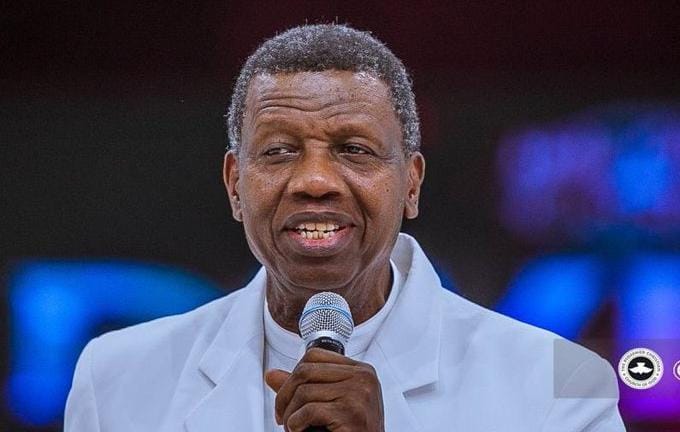The Redeemed Christian Church of God (RCCG) has found itself navigating a delicate balance between upholding the principles of due process and responding to public outcry following the arrest of Olumide Ogunsanwo, popularly known as SeaKing, for his critical remarks about the church’s General Overseer, Pastor Enoch Adeboye. The controversy began when SeaKing publicly denounced Adeboye’s call for a 100-day fast for Nigeria, labeling it “stupid.” This critique led to SeaKing’s subsequent arrest, an action that sparked widespread debate and drew attention to the complex intersection of freedom of expression, religious sensitivities, and legal recourse in contemporary society.
The RCCG’s response to the unfolding situation has been marked by a careful articulation of its position, seeking to address public concerns while maintaining a commitment to the rule of law. Initially, Pastor Adeboye himself publicly called for SeaKing’s release, distancing himself from the arrest and emphasizing his inclination towards forgiveness. However, the church’s Public Relations Unit subsequently issued a statement clarifying that the videos containing SeaKing’s potentially defamatory remarks had not been fully reviewed at the time of Adeboye’s initial statement. This clarification signaled a more nuanced approach, acknowledging the need for a thorough examination of the situation before reaching any definitive conclusions. The church then announced its decision to allow the legal process to unfold unimpeded, emphasizing the importance of due process despite Pastor Adeboye’s personal preference for reconciliation.
The RCCG’s statement underscored the delicate balance the church was striving to maintain. It emphasized that Pastor Adeboye’s personal desire for forgiveness and reconciliation did not supersede the established legal procedures. The church reiterated its commitment to upholding the rule of law, highlighting the need for a fair and impartial investigation into the matter. This careful approach aimed to demonstrate that the church was not seeking to exert undue influence or circumvent the justice system, but rather to respect its established processes.
Further complicating the situation was the revelation that a formal complaint had been filed against SeaKing by the Concerned Christian Youth Forum, acting on behalf of a group referred to as the “Fathers of Faith,” which includes Pastor Adeboye. This added another layer to the ongoing narrative, raising questions about the specific grounds of the complaint and the potential legal ramifications for SeaKing. The RCCG’s statement addressed this aspect by explicitly stating its intention not to interfere with the ongoing police investigation, thus reinforcing its commitment to allowing the legal authorities to conduct their work without prejudice. This stance aimed to preempt any accusations of bias or undue influence by the church, further underscoring its respect for due process.
Beyond the immediate legal proceedings, the RCCG also took the opportunity to address the broader issue of online discourse and its potential implications for religious communities. The church expressed its concern regarding cyberbullying and inappropriate commentary directed towards Pastor Adeboye, the RCCG itself, and the Christian community at large. This highlighted the increasing prevalence of online platforms as spaces for both critical expression and, unfortunately, targeted harassment and defamation. The RCCG’s call for respectful discourse reflected its concern for maintaining a civil and constructive online environment, particularly when discussing matters of faith and religious leadership.
In conclusion, the RCCG’s response to the SeaKing controversy represents a complex interplay of several key considerations. The church’s commitment to due process, its desire to maintain a public image of respect for the law, and its concern for the well-being of its leader and the wider Christian community all contributed to its carefully worded statements. Furthermore, the incident underscores the challenges faced by religious institutions in navigating the evolving landscape of online expression, where freedom of speech often clashes with sensitivities surrounding faith and respect for religious figures. The RCCG’s emphasis on respectful discourse and its decision to allow the legal process to unfold unimpeded represent its attempt to find a balance between these competing values in a rapidly changing world. The ultimate resolution of this case will likely have implications for future discussions about the boundaries of online criticism directed at religious figures and the delicate balance between free speech and the protection of religious sensibilities.














